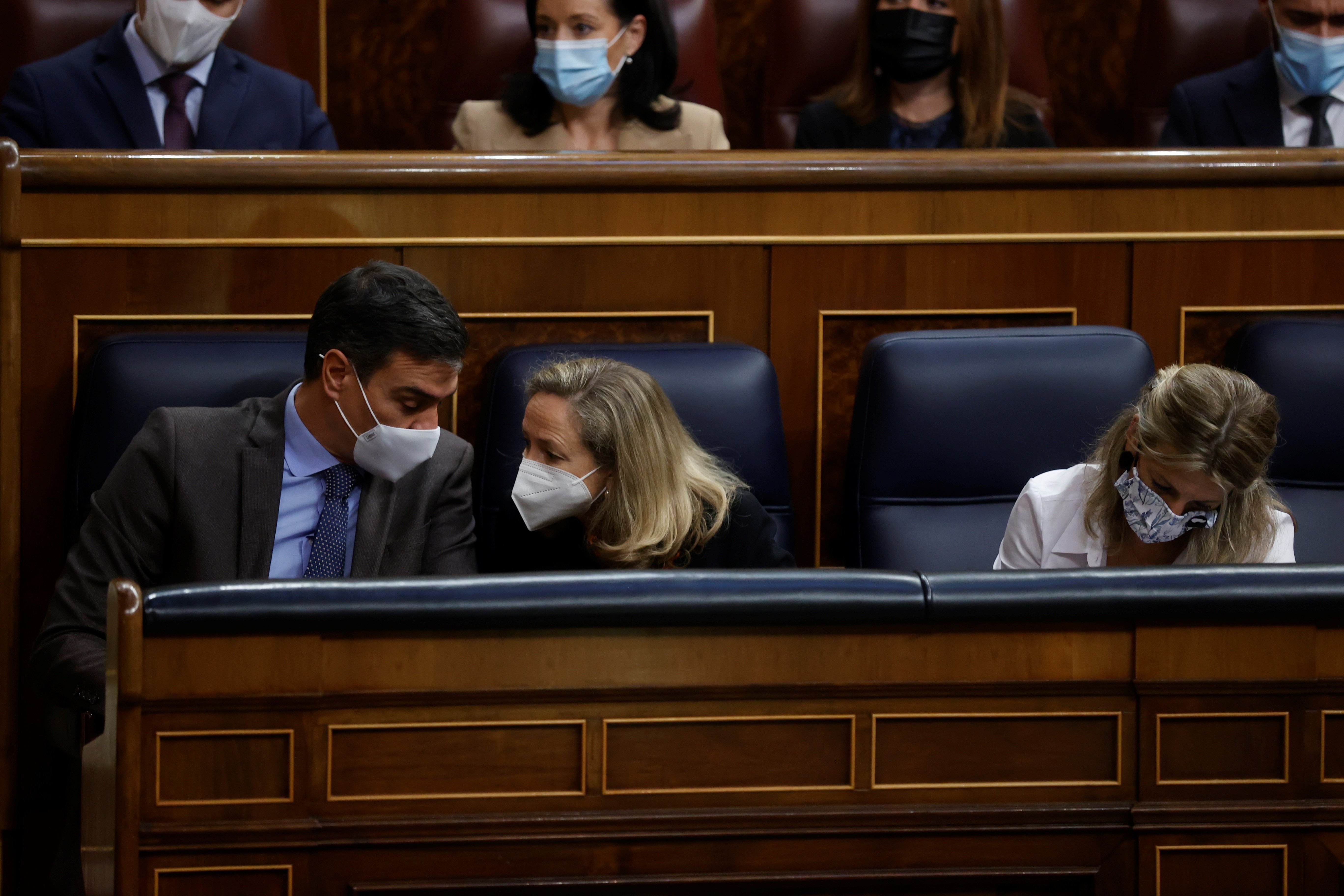The political blaze ignited over the poor treatment for Spain's minority languages in the government's draft audiovisual law is far from being extinguished. Catalonia's ERC expressed outrage yesterday, after it was leaked that the new law plans to exclude international platforms like Netflix and HBO from any quotas for content in co-official languages like Catalan, Basque and Galician. And despite ERC's threats to boycott the bill and even block the government's budget in the Senate, first deputy PM Nadia Calviño has not moved her stance on the issue at all. There is so much noise on the question that it has even bothered the members of Unidas Podemos, whose spokesperson Jaume Asens has warned that today they are "closer to no than yes" on the matter.
In an Onda Cero radio interview this morning, Calviño said she was "willing" to dialogue and amend the audiovisual law in its parliamentary procedure, but with limits. The minister, in charge of the audiovisual law project, reiterated that measures to protect Catalan, Basque and Galician cannot apply to platforms that do not have their headquarters in Spain, because "nothing can be done that contradicts" European directives. "All negotiations have a clear limit, which is the letter of the EU regulations, which this bill has to transpose to Spain," the Socialist politician asserted.
The first deputy PM used the same words as yesterday when presenting the bill, reiterating that the bill was "a good balance between the promotion of the sector and the protection of our culture and languages" because "our government is committed to this." And she concluded: ”Within this framework, we will try to have the best possible law that promotes the audiovisual sector in our country and that also promotes translation to Spanish and the co-official languages”.
Alarms have not only been raised in ERC, but also among members of Unidas Podemos. So much so that the leader of the parliamentary group, Jaume Asens, warned today that his party is "closer to a no than a yes" on the audiovisual bill. In fact, Asens criticized the Socialists for not negotiating with them: "The PSOE has decided to negotiate with ERC, which is an opposition party, but has not yet negotiated with its governing partner." He added: "Since they did not want to negotiate with us, we'll have to see in the amendment phase if this goes ahead." In the same vein, Spain's second deputy PM, Unidas Podemos's Yolanda Díaz, said that she was confident that "agreement" would be possible within the coalition government.
Unidas Podemos sources have said that they did not know that the audiovisual bill would be presented for cabinet approval yesterday and see it as an "unintelligent" move by the PSOE.
Technical meeting
After the uproar when the text of the bill was revealed, ERC called for an urgent meeting with the PSOE. According to sources from both parties, this meeting was to take place on-line this Wednesday at the end of the Congressional session. ERC sources say that it is a technical meeting "to explore routes".

